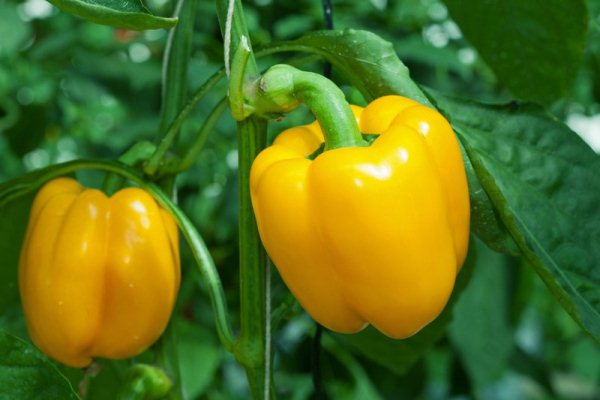Sweet pepper is a heat-loving, annual plant bred in America. Valued for its unique taste and high vitamin content.. In the article we will look at early, middle and late ripening varieties, discuss hybrids, and offer varieties for stuffing.
Table of contents
Early varieties of bell pepper for open ground
Early varieties are called allowing for a short time (70-120days) get a high yield. Most species can be grown in unprotected soil. Description and characteristics of the best varieties are presented below.
Big Mom
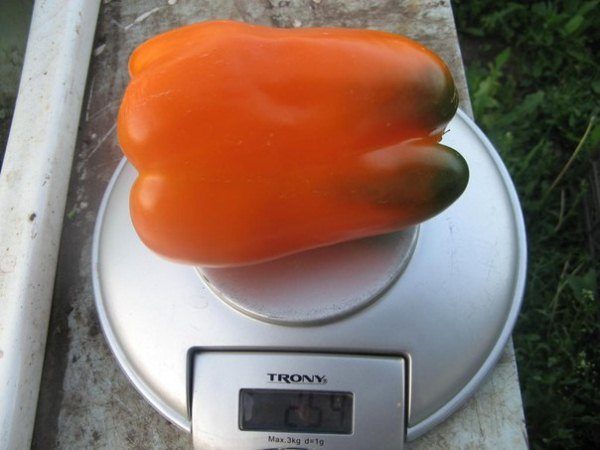
Fruits are large (200g) of rectangular warm orange color. A bush in a greenhouse can grow to 1 m, in unprotected soil - 50-70 cm. Fine taste and fresh, and after heat treatment.
Merchant
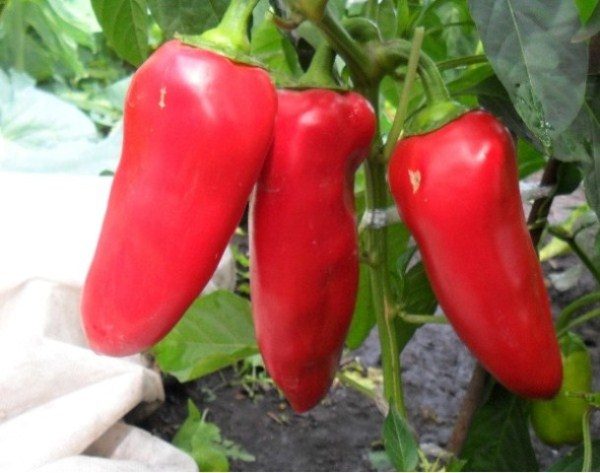
Medium sized plants, with fruits having the shape of a regular pyramid. When biological ripening, they are dark red in color, with juicy dense flesh. Peppers large-fruited, thick-walled.
Mid-season
Medium ripeness varieties are those the growing season which occurs in the interval from 110 before 130 days. This species is characterized by the duration of fruiting.
Swallow
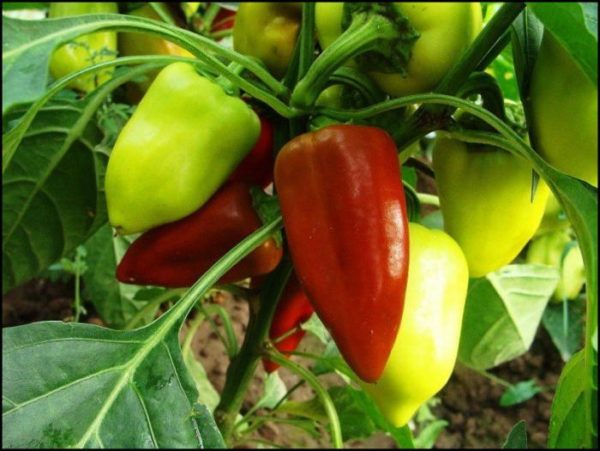
The grade differing in high germination of seeds. Fruits are cone-shaped, red. Length of ripe pepper Swallow before 10 cm. The shrub is small, about 50 cm.
Atlant
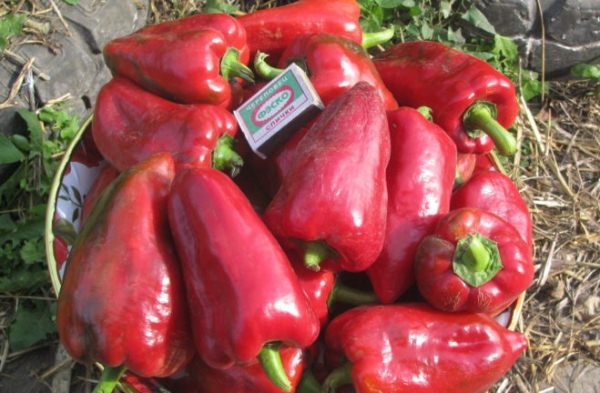
Tall variety, yielding a fairly large crop. Fruit Atlant large (400g), sweet, rich red color, thick-walled (1 cm). Peppers grow to 20 cm long. Resistant to diseases.
Sweet pepper for Siberia
Sweet pepper - comes from hot countries, he likes a warm temperate climate. But even in such a harsh region, as in Siberia, you can grow peppers and get a great harvest. There are many varieties for the cold climate zone. What to use in the area? Summer in Siberia is short, so it is better to use early or medium early peppers. The most common among them are the following:
Dandy
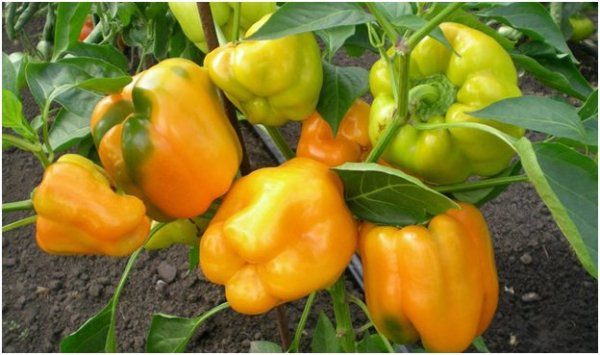
Early variety with a low bush (up to 50 cm). Vegetables are cylinder shaped, dark yellow when ripe. The thickness of the pulp is 5-8 mm.
Tolstosum
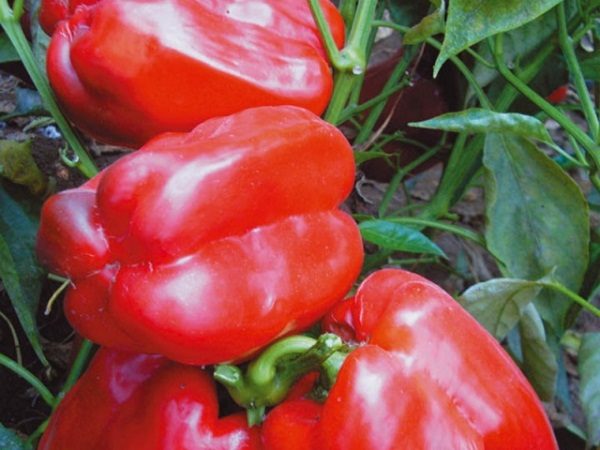
New variety bred in Siberia. Resistant to cold, grows well in unprotected soil. Strong bush to 60 cm. Ripe red vegetable, large. The thick wall of the pulp tastes sweet, juicy.
Golden Taurus
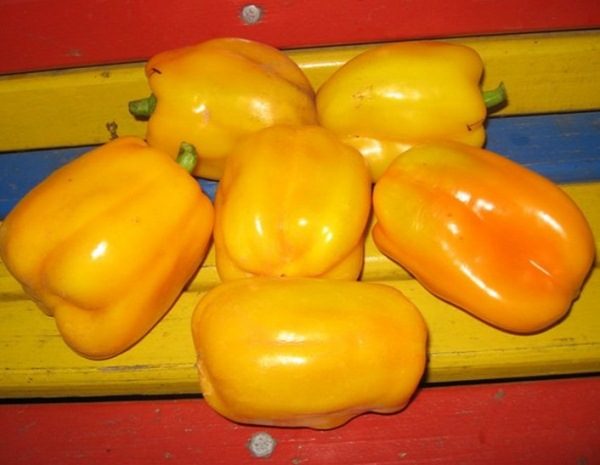
Medium early culture, well adapted for cultivation in Siberia. Bushes of medium height. Fruits are orange, glossy, cubical shape. The wall of vegetable flesh is very thick, up to 20 mm.
Sweet chocolate
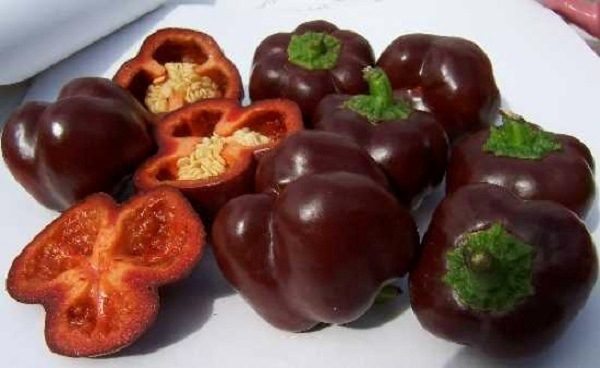
Unusual due to its paint. The fruit is dark brown in color, while the flesh inside is red. Pepper is very juicy and sweet in taste, perfect for preservation.
Varieties for the Moscow region
For the volatile climate of the Moscow region, varieties resistant to sudden changes in temperature should be selected. Popular among gardeners are the following:
Golden medal
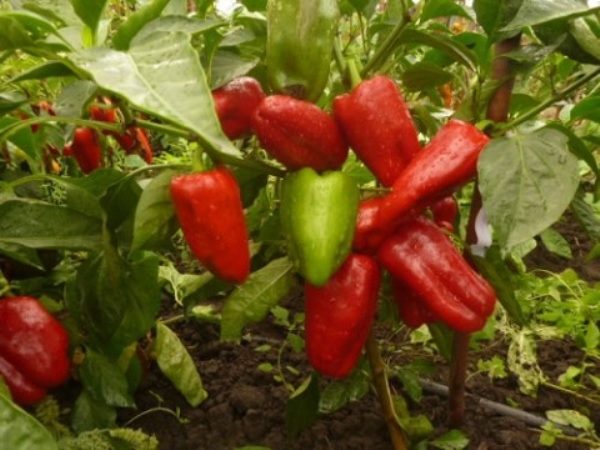
High-yielding, can grow in unprotected soil. Shrubs high (up to 1 m). Fruits are straight, long (up to 13 cm) with an average wall thickness.
Belozerka
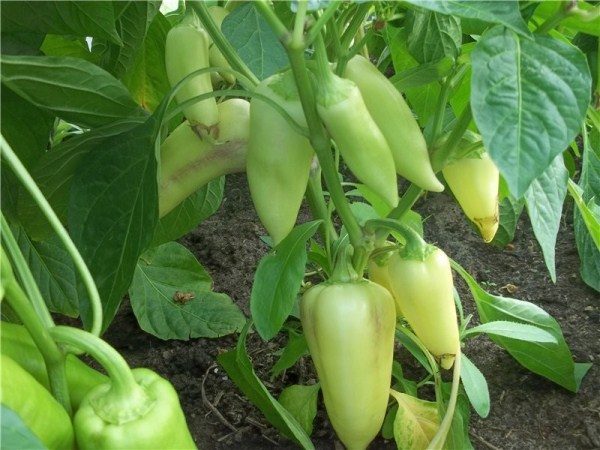
Belozerka resistant to climate change, has high yields. On low bushes (50-80cm) small conical pods are formed. The color changes from light green to red by the end of ripening.
Winnie the Pooh
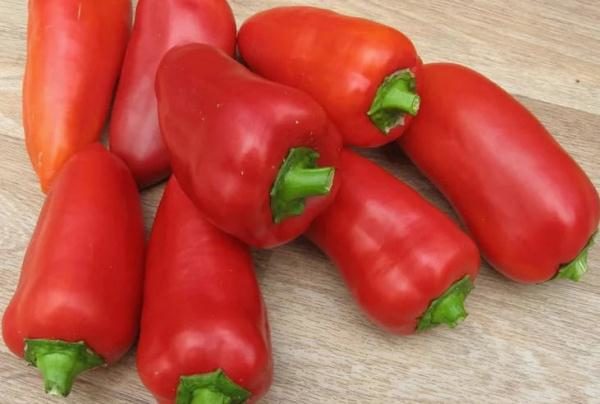
Bushes are low, suitable even for the smallest greenhouses. Winnie the Pooh It grows well in open ground. Fully matures for 100 days Fruits are small (10 cm), smooth, have the shape of a sharp cone. The color of ripe pepper is bright red, the wall thickness of the pulp is 6 mm.
Gogoshary
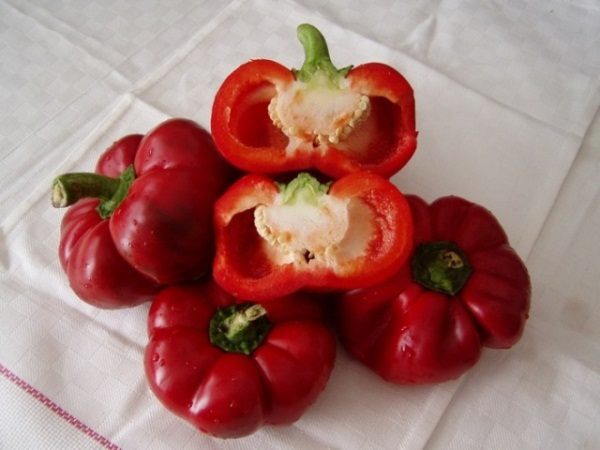
Medium early variety (95-100 days). It has an unusual flat shape resembling a pumpkin. Bushes are tall, strong (up to 1 m). Fruits are thick-walled, fleshy, dark green at the beginning of ripening, saturated red at biological maturity. It has an interesting sweet-spicy taste, good both fresh and after heat treatment.
Best hybrid varieties
Seeds of hybrid varieties are not suitable for further planting. therefore seedlings will have to buy every year. But such qualities as high resistance to diseases, yield and impressive size of fruits force gardeners to buy seeds of hybrid plants from year to year.
Marinkin tongue
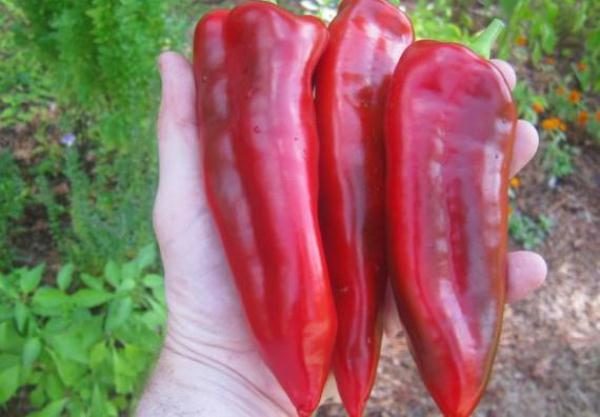
Medium-height plant with rather large fruits (up to 200 d) long elongated shape. The taste is sweet, very pleasant,but the shelf life of these peppers is not large.
Triton
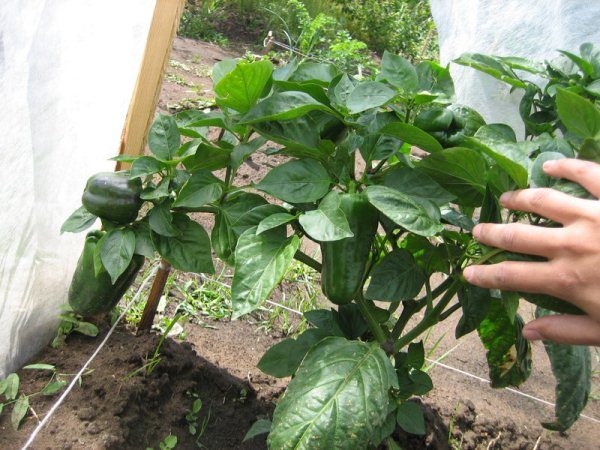
Incredibly high yield - on one bush can grow more 50 peppers! The shape of the fruit is cone-shaped, the wall is not thick. Bright red fruit are ideal for processing.
Atlantic
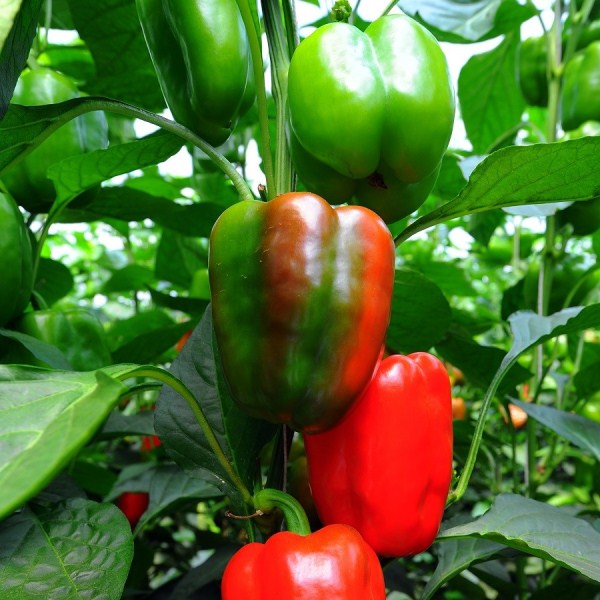
Classic representative of culture. Large fruits of bright red color, very juicy and fragrant. Widely used for blanks and as part of fresh snacks and salads.
Description of the best late-ripening varieties of pepper
Most suitable for southern latitudes, because for full maturation they need 140-150 days with good weather.
Hercules
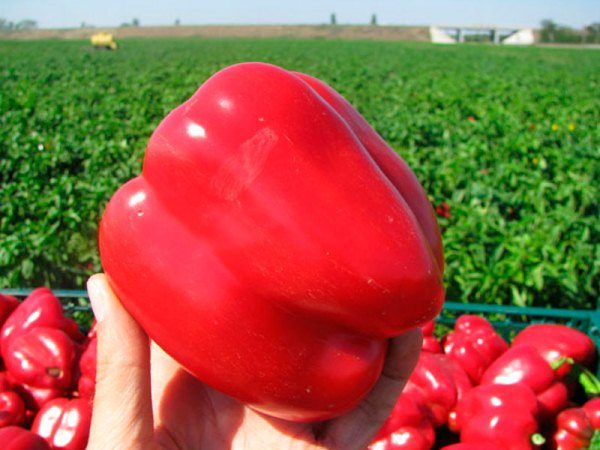
Short, has many large fruits. Ripe peppers Hercules red, with thick juicy flesh.
Yellow bell
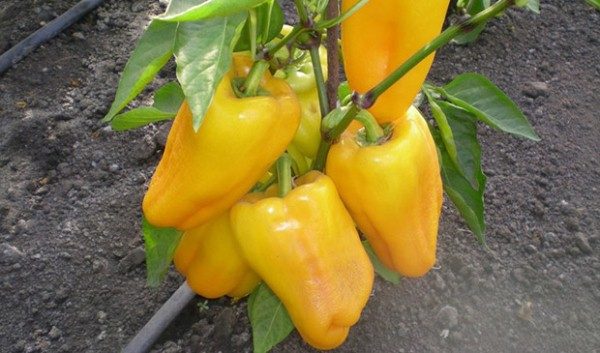
The average height of the plant (up to 75 cm) with large fruits of yellow-orange color when ripe. The shape resembles an inverted bell.. It has a thick wall of flesh and a great fresh taste.
Bogatyr
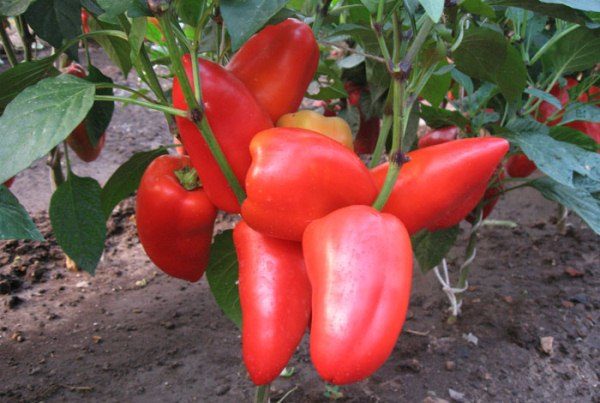
Bogatyr not afraid of open ground. Bushes are small, with large fruits. Ripe red-red pepper cubes with juicy pulpIt tastes great and is aromatic.
Marshmallow
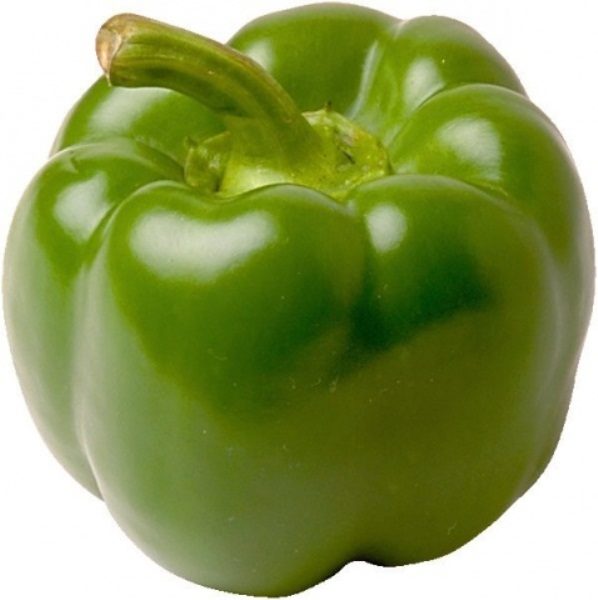
High yielding tall plant (up to 80 cm) with a large number of spherical fruits. The flesh is very juicy and sweet. The color changes from deep green to bright red.
Thick-walled large-fruited varieties
Wall thickness and fruit size for most gardeners is a decisive factor when choosing seeds. Thick-walled are peppers with a flesh thickness of 6mm. These varieties are great for canning, drying and freezing.
White gold
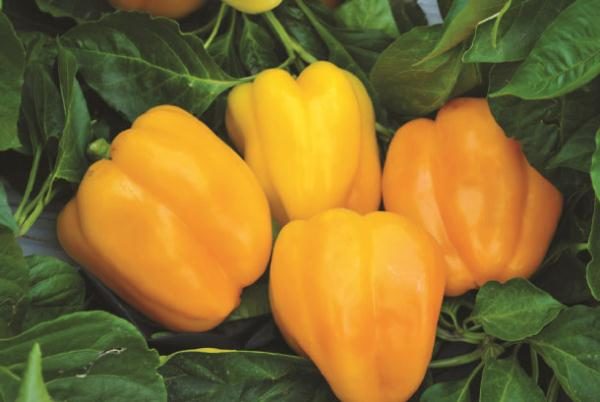
Can be planted in open ground. The plant is low, with very large yellow fruits (up to 450d). The peppers are cuboid.
Siberian format
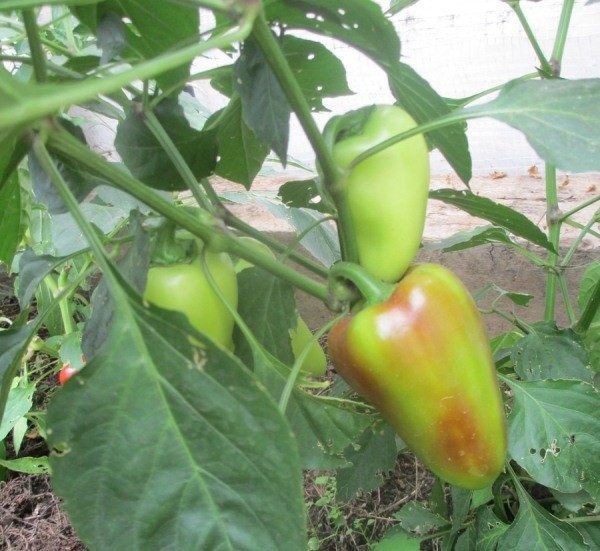
Mid-season, on high and powerful bushes grow very large peppers. The size of the fruit grown in the greenhouse can reach 500 g!
Queen
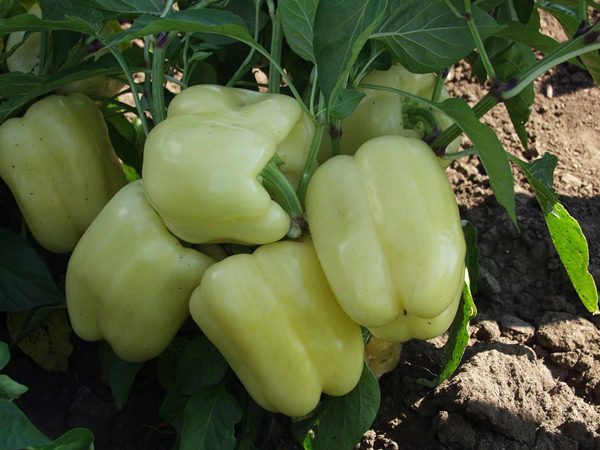
The fruitful, small fruit (up to 200g) has a thick ruby-red flesh. Perfectly transfers long shipments.
The best peppers for stuffing and processing
Stuffing
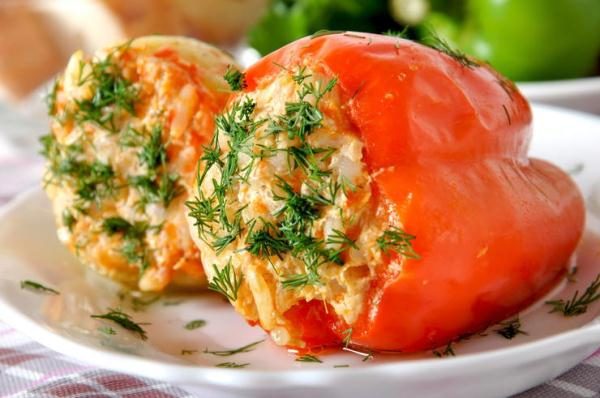
The ideal use of pepper in food is its stuffing. To do this, usually use even, medium-sized peppers of the same size. Among the earliest are: Lyubava, Divo, Golden miracle, Banana, Marinkin tongue. Among mid-season: Antey, New Russian, Stepashka.
Drying
For drying suitable long and elongated fruit. Perfect for this Sabelka and Wonderful Paprika. You can dry them in the open air.
Canning
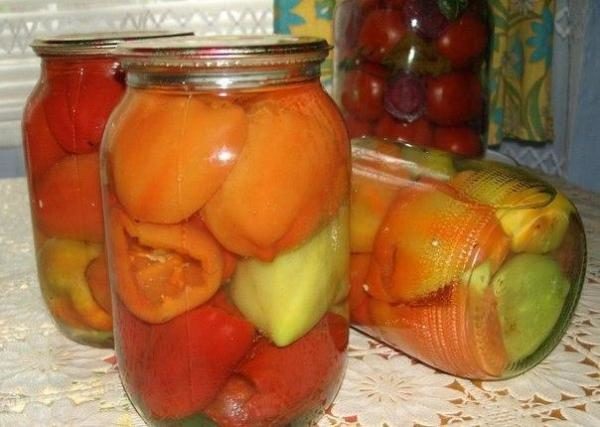
For conservation it is ideal to use fleshy thick-walled varieties. And if you take a few multicolored peppers, the harvest will come out not only delicious, but also beautiful. Perfectly suitable for canning: Avant-garde, Adept, Bogdan, Ideal, Lilac Bell, Chocolat beauty, Amber.
Conclusion
Bulgarian pepper is an unusually healthy, tasty and beautiful vegetable. It is grown in regions with different climatic conditions - Siberia, Moscow region, Donbass, Crimea and others. Due to the bright variety of colors and juicy fresh taste, there will always be a place on the festive table. And in filling with vitamins, pepper is the leader among other vegetables. Eating only one pepper a day, you can replenish the daily supply of vitamins C and E. Sweet pepper is called a "beauty vegetable", because eating it improves the skin and strengthens the hair. Pepper is also useful for eyes, due to the high content of beta-carotene.
